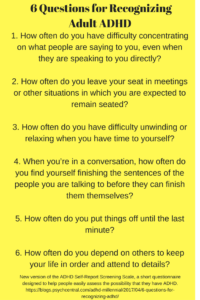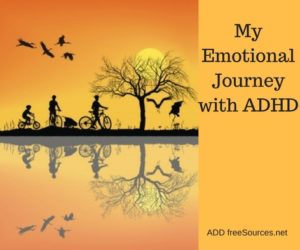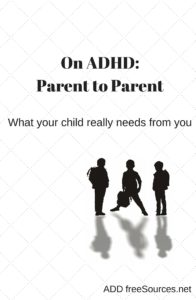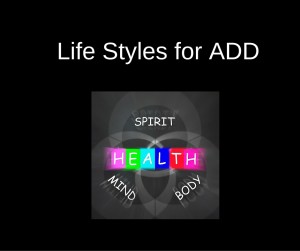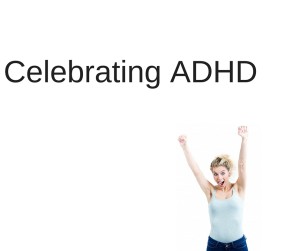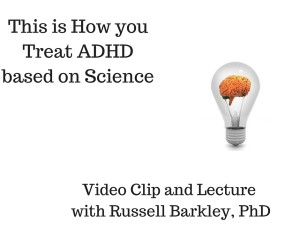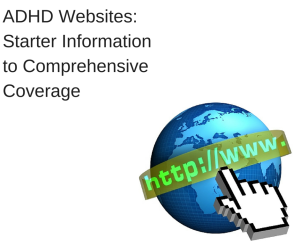For most neurotypical people, ADHD is hard to understand. (1) It seems like we are forgetful or careless. Sometimes we come off as self-centered or even lazy. Believe me, I totally understand why other people perceive us this way.
But you are not lazy or unmotivated. And you are not self-centered. I have spent hours thinking about and talking to other women with ADHD. After a while, some patterns emerged.
Like anything else, ADHD is individual. We all experience varying degrees and types of symptoms. If you have ADHD over the course of your lifetime, which most of us do, the symptoms actually change with your age and your circumstances.
What all women with ADHD need to remember is that they are not alone.
WANT TO KNOW HOW IT FEELS TO HAVE ADHD?
FRUSTRATING
Everyone has felt frustrated with themselves at some point. But for us, the frustration is aimed at ourselves. This is an insidious type of frustration that makes you doubt yourself at every turn.
We spend a lot of time with negative thoughts running on replay through our heads. Unfortunately, we also have trouble stopping these thoughts and managing them. Long term this causes all types of psychological symptoms ranging from anxiety to major depression.
Imagine being mad at yourself all the time. We are our own toughest critic.
RACING THOUGHTS
Having ADHD means your thoughts go so fast that you barely have time to acknowledge them before you are on to the next thing.
In the course of 60 seconds, I think about this website, my son, my dog, the work in front of me and the noise coming from my neighbor’s garage. None of these thoughts actually reach fruition… they just flit through my brain before I get to completely process them. Usually, I cannot even remember what I was trying to think about.
You know how sometimes you will walk into a room and forget why you are there? It’s like that – but with everything.
Often, I cannot remember what I sat down to write about. Sometimes I forget that I already started writing about a certain topic. I end up with 3 different word documents all started on different days about the same subject. It is infuriating.
But I can only concentrate on being furious for a few seconds until my brain moves on to the next thing. At least I don’t hold grudges?
Every so often I have a meltdown. Usually, this is a result of total and complete mental exhaustion brought on by parenting, work…life. Apparently, I am not alone in this.
So many women with ADHD report feeling chronically mentally fatigued. Initially, I thought this might be due to the fast-paced activity that is happening in our brains. (See racing thoughts above.)
But then I started to think about how many of us seek comfort through food or other behaviors. Since ADHD involves brain chemicals, it makes sense that we might feel a bit fatigued since we lack the normal amount of dopamine. Dopamine is the chemical most often associated with pleasure or rewards, but it is not the only neurotransmitter implicated in ADHD. (2)
The best remedy to control the how our brains use dopamine, serotonin and norepinephrine in our brains is to take our meds as prescribed. (2) Add exercise and eat a healthy, nutrient dense diet. Oh and get plenty of sleep and relaxation time. Coaching or therapy can also help you develop self-awareness and to develop other coping strategies. Organization and time management skills should be implemented gradually, addressing the areas that cause you the most difficulty first. It will take effort, but over time, you will feel more in control of your life.
Other than those options, I have no good advice. I am struggling with cognitive fatigue as I write this.
IRRITABILITY
Along with a tendency to feel tired, many women with ADHD also report feeling a bit cranky.
Imagine spending all day feeling frustrated with yourself, unable to concentrate, racing thoughts and fatigue…and then you come home and your family says, “What’s for dinner?”
Yeah, that is a recipe for trouble. (Or at least a lot of slamming cupboard doors and swearing under your breath.)
Irritability tends to be a symptom of anxiety and/or depression for many of us. It’s tough to live like this and hold it together. I once referred to having ADHD as, “trying to hold about 100 corks under water all at the same time.”
In order to feel less irritable, you probably have to address the chemical issues in your brain. So think about getting diagnosed and medicated. ADHD meds may not be enough so you will need to try some other coping mechanisms. Think mindfulness, journaling or maybe cognitive behavioral therapy. (Links go to Liz’s articles)
ADHD is frustrating and infuriating. A lifetime of criticism, from our self and others, really takes its toll. Some of us cannot even share our diagnosis with the people in our lives for fear of denial, disbelief, and stigma.
ADHD symptoms are individual so it is tough to describe all of them. The feelings mentioned here are ones that are commonly reported in my private community for women with ADHD and my public Facebook Group. Hopefully, with enough awareness and community support, we can support as many women and mothers living with ADHD as possible.
Finally, always remember you are not alone!
Note from the author: I hope that this writing was enlightening for anyone trying to understand what it feels like to be a woman with ADHD. If I wanted to go on I could, but that would be overkill.
About the author: Elizabeth Lewis is a freelance writer, wife, mother, and self-appointed CEO of her home. Liz founded A Dose of Healthy Distraction, a website and a private Facebook group to provide a realistic yet positive face to living with ADHD. She also runs the ADHD Enclave, a low-cost online support and coaching group for women.
Contact Liz at HealthyADHD@gmail.com or liz@adoseofhealthydistraction.com
This article was originally published as Want to Know How it Feels to have ADHD? Reprinted and edited with permission from the author.
(Link works) http://adoseofhealthydistraction.com/want-know-feels-like-have-adhd/
- Neurotypical – Definition from The Urban Dictionary – Neurotypical is a word used to describe a person who has a typical brain. This not only includes non-autistic people but also people without mental illnesses, intellectual disabilities or any other neurological illness or disorder such as ADHD, epilepsy or brain tumors. It is the opposite of neurodivergent. – Harvested 7/14/2017 urbandictionary.com/define.php?term=Neurotypical
- What Does Dopamine Actually Do? By Steven Fleming, Ph.D. – Harvested 7/14/2017https://www.psychologytoday.com/blog/the-hidden-mind/201212/what-does-dopamine-actually-do
- Neurochemicals Involved in ADHD by Elizabeth Stannard Gromisch – Harvested 7/14/2017 https://psychcentral.com/lib/neurotransmitters-involved-in-adhd/ Link works
“Image courtesy of Vlado/ FreeDigitalPhoto.net” Modified on Canva.com
“Image courtesy of Stuart Miles/ FreeDigitalPhoto.net”











